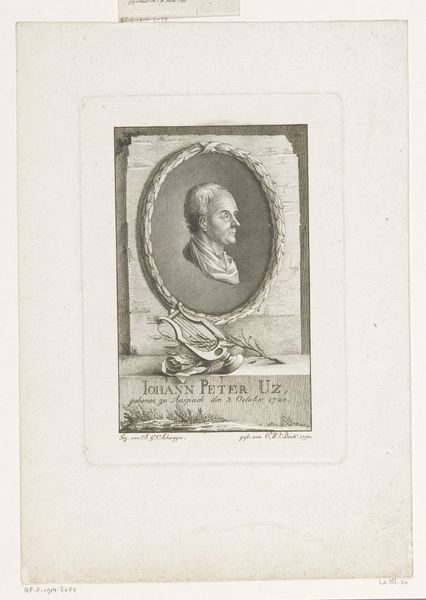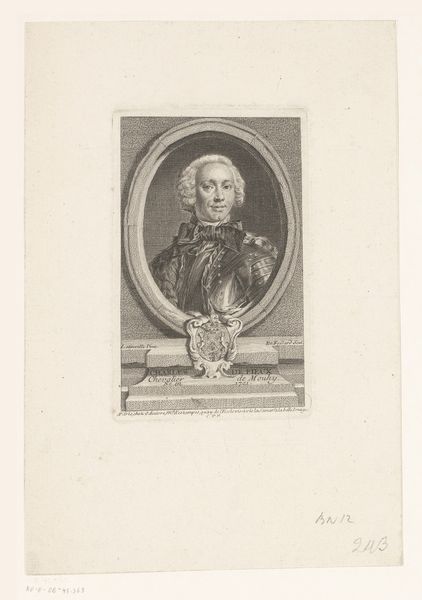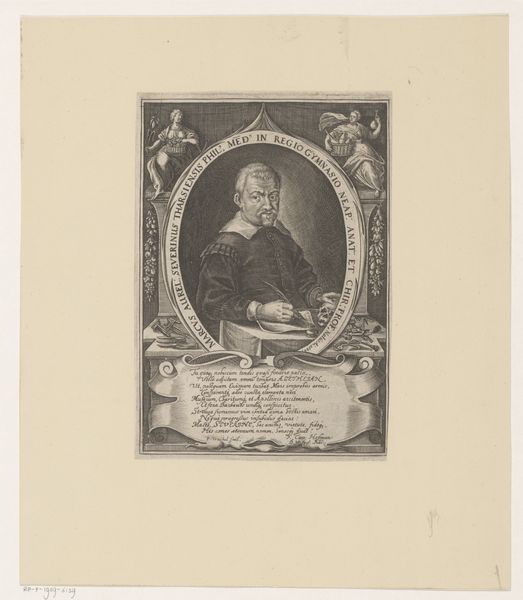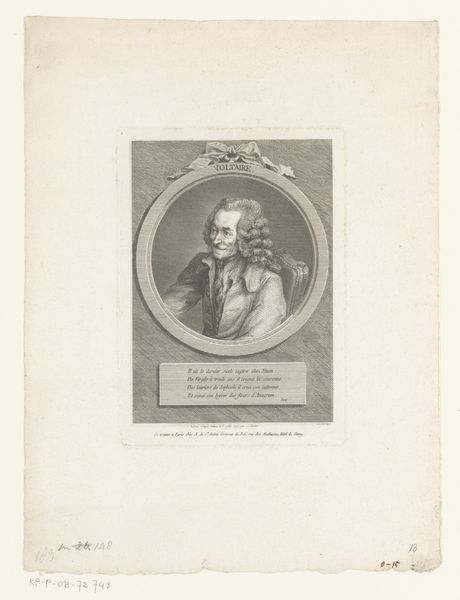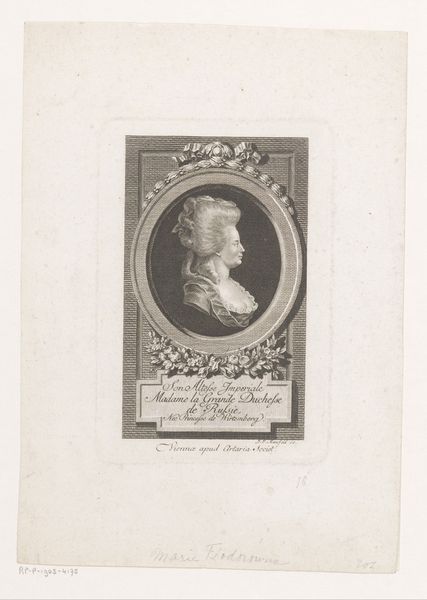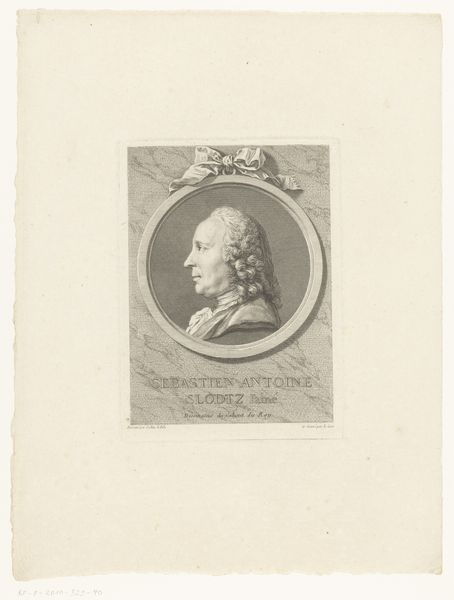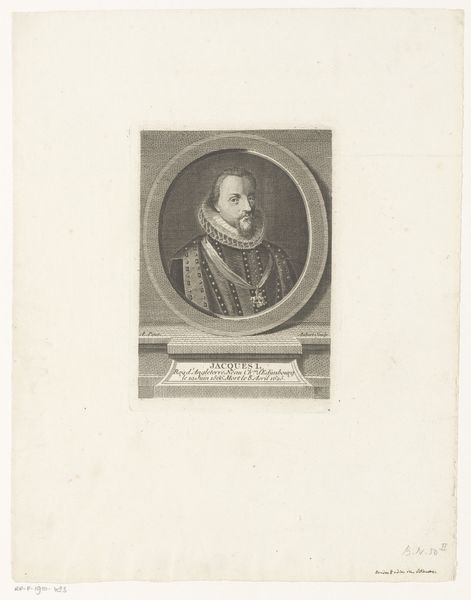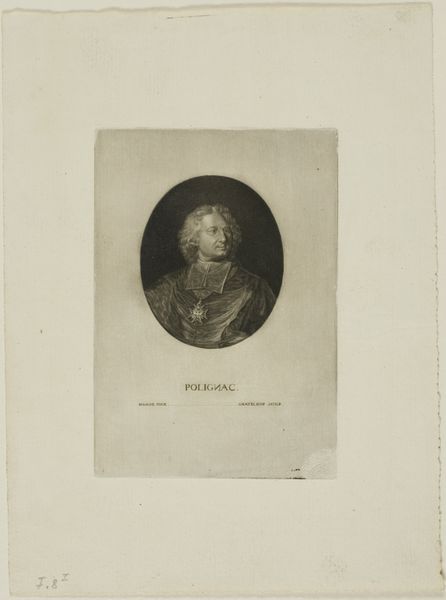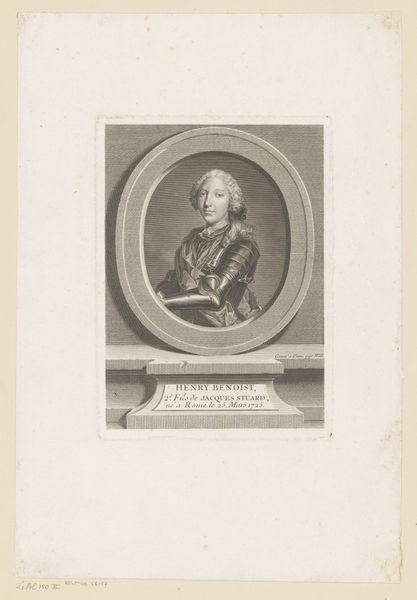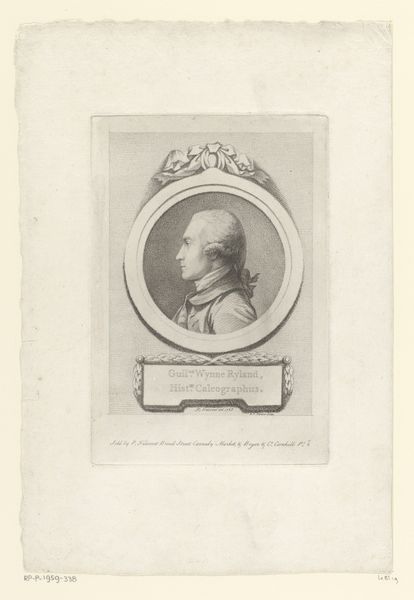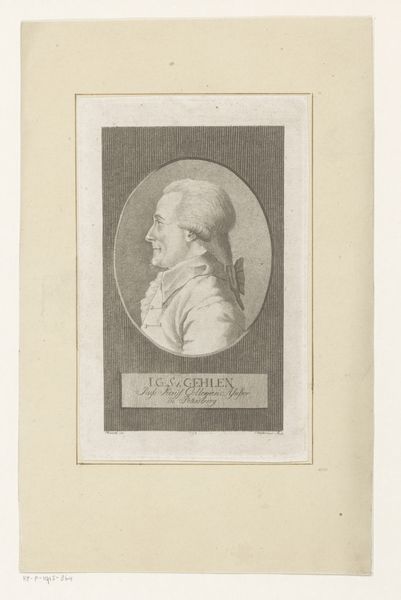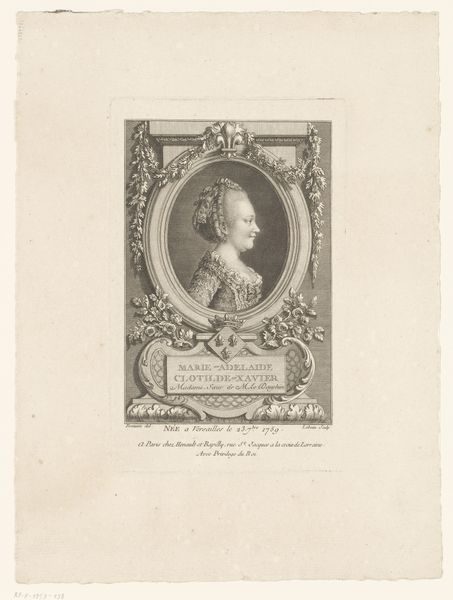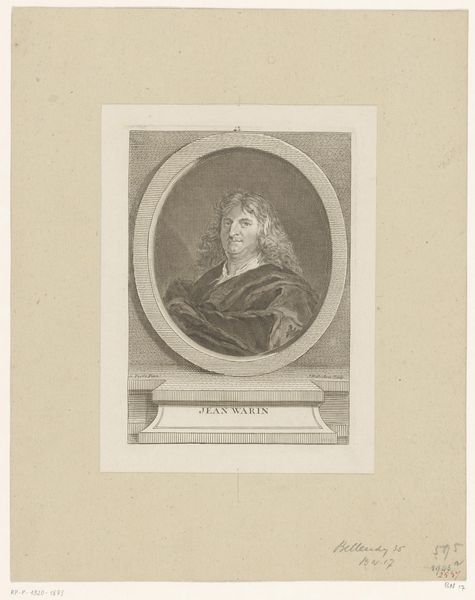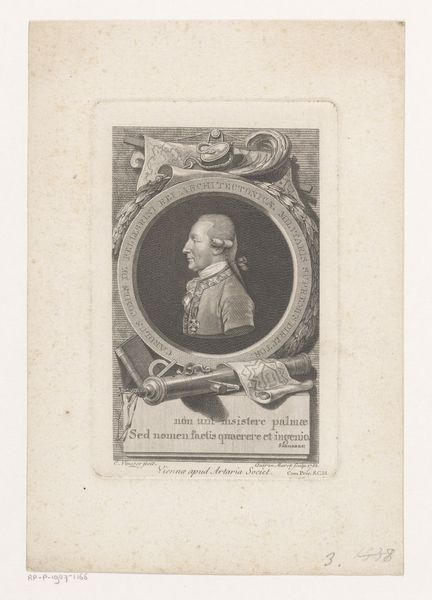
print, etching, engraving
#
portrait
#
baroque
# print
#
etching
#
old engraving style
#
history-painting
#
engraving
Dimensions: height 150 mm, width 104 mm
Copyright: Rijks Museum: Open Domain
Editor: This is Etienne Ficquet's 1745 engraving, "Portrait of Guillaume Vavasseur," housed at the Rijksmuseum. It's a fairly conventional Baroque portrait, but I'm struck by how severe and controlled the image feels. What layers are beneath its polished surface? How should we read the history in this piece? Curator: This portrait presents an interesting opportunity to explore the performance of identity and power during the Baroque period. Consider the subject, Guillaume Vavasseur; he’s presented in a very specific way, framed by this oval, which then sits upon a pedestal. This is not just a representation of an individual but a deliberate construction of status and authority. How does the print's visual language—the sharp lines and controlled shading—reinforce this idea? Editor: I see what you mean. The crisp lines almost seem to define him, like he is carved from stone rather than flesh. Was that typical for portraits in that period, to have such defined social boundaries? Curator: Exactly. And think about who this portrait was made for. Prints like these circulated amongst a specific class. They were tools for building networks, solidifying social hierarchies, and communicating ideals. Vavasseur's identity isn't just personal; it is inherently linked to his role and function within that social framework. Can you imagine who may have viewed and owned such a portrait and how it might function for them? Editor: So it's less about individual personality and more about reinforcing established social narratives. Knowing that shifts my whole perspective. I see it less as a picture and more as a statement about power. Curator: Precisely. And by understanding that, we can start to unpack the complex ways in which art participates in the construction and maintenance of social order. This single image reflects far more than just an individual. Editor: This makes me think about representation in a totally new way.
Comments
No comments
Be the first to comment and join the conversation on the ultimate creative platform.
